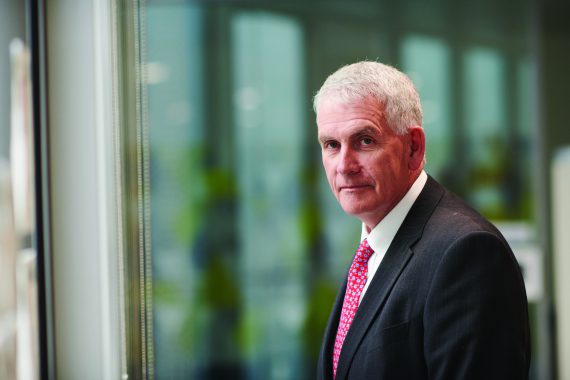GP workload is rising to the point where it is ‘verging on unmanageable’ and in some regions of the country may be putting patients at risk, the chair of the Government’s GP partnership review has been told by the profession.
In his report published today on the interim findings from the review, independent chair Dr Nigel Watson said GPs had also told him they were regularly working 12 to 14-hour days, which he said was ‘not sustainable’.
He said his work over the past four months has revealed general practice and the partnership model is ‘fragile’, but reiterated that, despite workload and recruitment problems, ‘the partnership model is not dead’.
The BMA GP Committee has welcomed the interim findings, saying the ‘unsafe workload pressures’ and risks attached to being a partner that are identified in the report must be dealt with for the partnership model to be reinvigorated.
The report lays out a number of options being explored by the review team to tackle the problems, ahead of final recommendations being made by the end of the year, including those related to career development:
- a new role for recently qualified GPs to develop clinical interests
- the creation of ‘associate partners’ or ‘non-equity’ partners
- providing protected time for older GPs to become mentors
Plans to develop a new role for GPs in their first year after qualifying would allow them to potentially work across different practices while also developing clinical specialities.
This is in a bid to tempt newly qualified GPs into substantive posts by offering more flexibility – and support – after the review team found new GPs believed locum work was less restrictive than salaried or partner roles, but that locum work left them ‘vulnerable’.
Other proposals being looked into include the creation of ‘associate partners’ or ‘non-equity partners’ to help create career progression within partnership.
In addition, the skills of older GPs – who take on more clinical risk at this later stage in their career by dealing with complex patients – must be recognised to help stem early retirement, according to the report.
‘One way of doing this may be through resourcing protected time whereby experienced GPs towards the end of their career undertake roles such as mentoring other GPs,’ it says.
Meanwhile, the review team is looking at changes to the way workload is managed, including:
- plans to alter the length of appointments
- potentially allowing practice staff other than GPs to sign fit notes
‘Flexibility in appointment length can have an impact on workload. A ten-minute appointment is not a contractual requirement, however the reality is that longer appointments will result in a reduced number of available appointments offered or the individual has to work longer hours,’ states the report.
‘The chair will work with the Department of Health and Social Care, NHS England, the RCGP and the BMA GP committee to consider how we can best support practices in bringing in changes to appointment length, where this is appropriate, to support different ways of working,’ it adds.
To deal with increasing numbers of requests related to fit notes, the review is ‘working to assess whether qualified and appropriate, staff may be able to provide the information required’ and ‘whether there are digital solutions that could be employed’.
As part of efforts to reduce the financial risks associated with partnership, the review team is working ‘closely’ with NHS England’s review of GP premises and is considering:
- the possibility of an ‘assignment clause’ in the GMS contract
- promoting the separation of the partnership model and premises ownership as two distinct entities
The inclusion of an assignment clause in the contract ‘would mean that practices are not left in the position of potentially being liable for the full term of the lease if the practice contract ceases,’ says the report.
It also adds that the other ‘major issue’ of rising costs of indemnity – and the disproportionate amount that is paid by GPs who work less than full time – must be addressed.
‘A state-backed indemnity scheme that covers all clinical staff who work in practices and primary care networks is essential,’ says the report, referring to the Government’s new scheme, expected to launch on 1 April.
In his introduction to today’s report, Dr Watson said: ‘While I have been asked to make recommendations to revitalise the partnership model of general practice, it is difficult to separate this from issues that more broadly relate to the future of general practice.
‘For example, addressing the issues of workload, workforce and risk would give confidence to newly qualified GPs, who might then become partners in a practice.’
Commenting on the report, BMA GP Committee chair Dr Richard Vautrey said: ‘This interim report identifies many of the problems consistently raised by the BMA that must be solved if the partnership model is to be reinvigorated, not least dealing with unsafe workload pressures and managing risks that so often outweigh the benefits of becoming a partner.
‘Workforce recruitment and retention issues, spiralling indemnity costs, premises risks, and other financial liabilities all ultimately fall on the partner, and they must be tackled if we are to make the model more appealing to both today’s GPs and those of tomorrow.’
The review group will be consulting with the profession about possible recommendations over the following three months.
Events will take place during the autumn to discuss the proposals and will be publicised through groups including local medical committees, the RCGP and the BMA’s GP committee.
Today’s report does not provide details about any increases in funding required to bring in the proposals being considered.
But in an interview with Pulse, which took place just ahead of the report being published, Dr Watson said the recommendations his review team expects to make will ‘inevitably… not be cost neutral’.
Pulse October survey
Take our July 2025 survey to potentially win £1.000 worth of tokens












